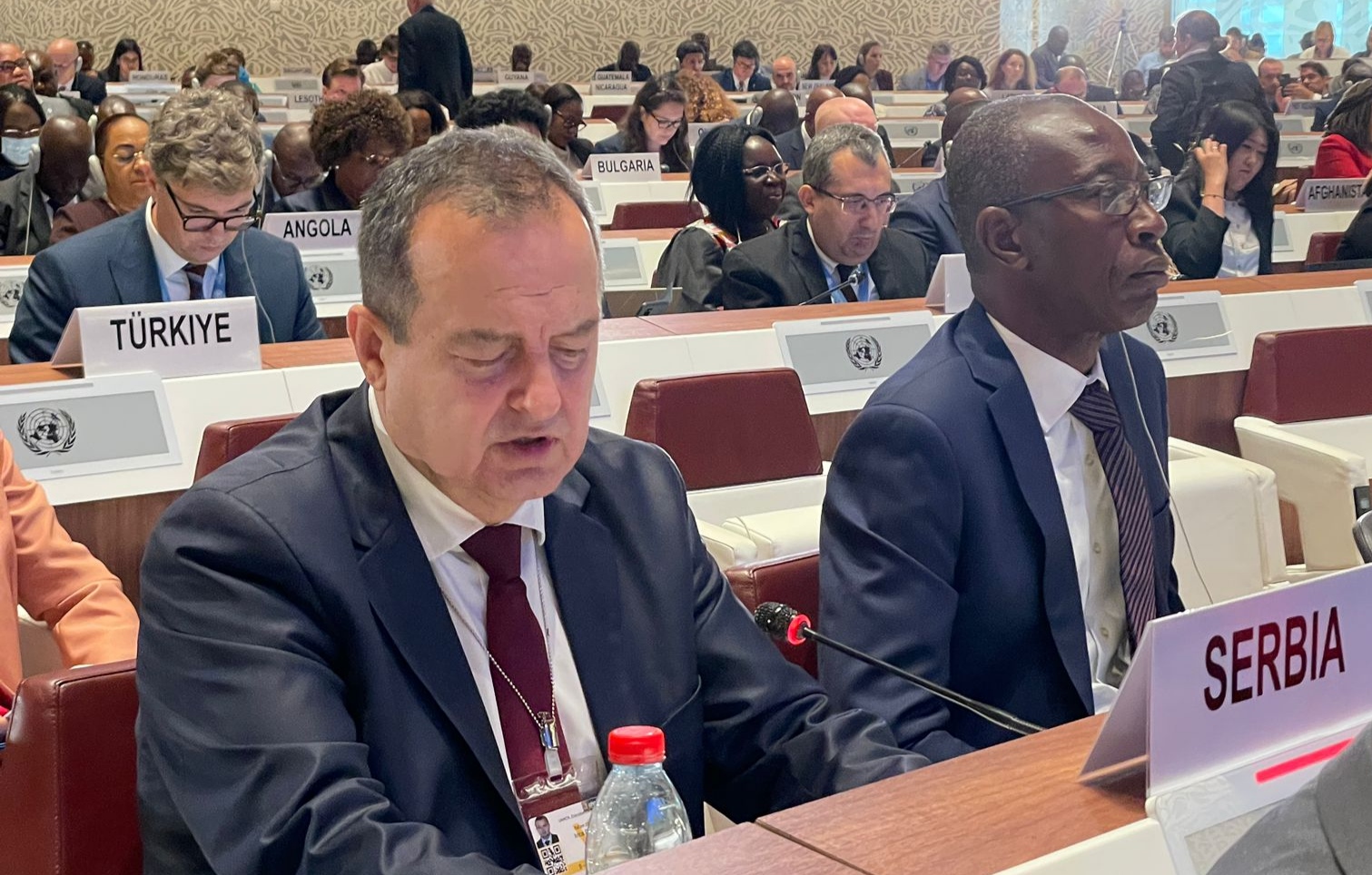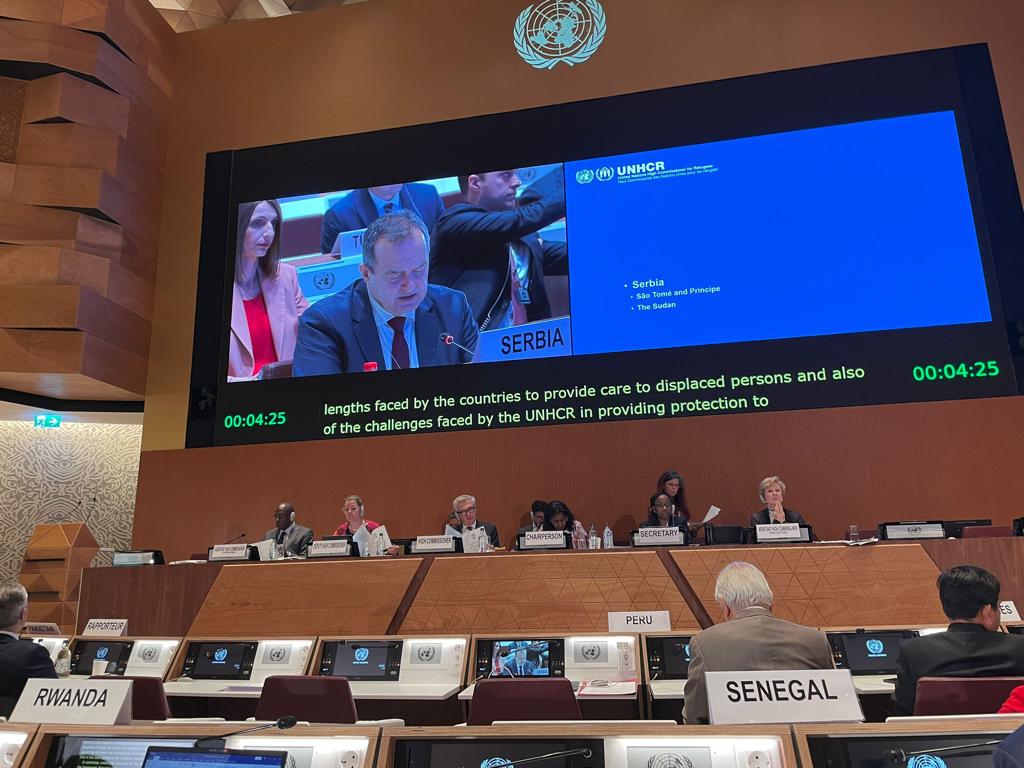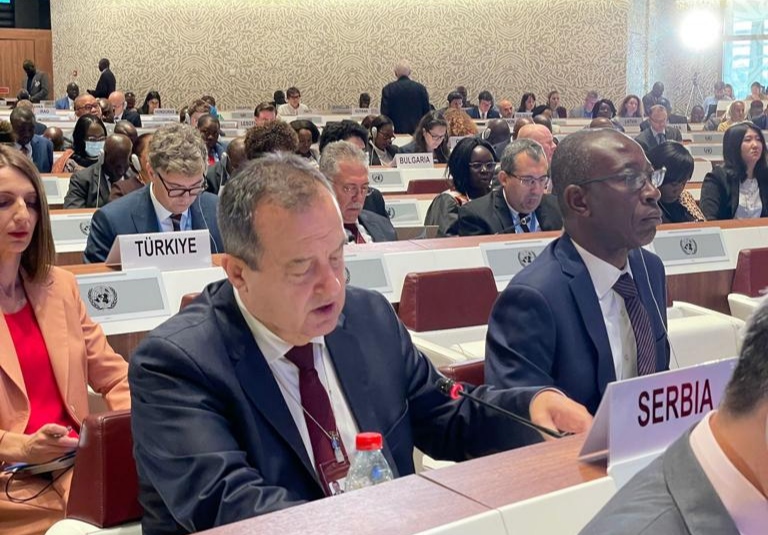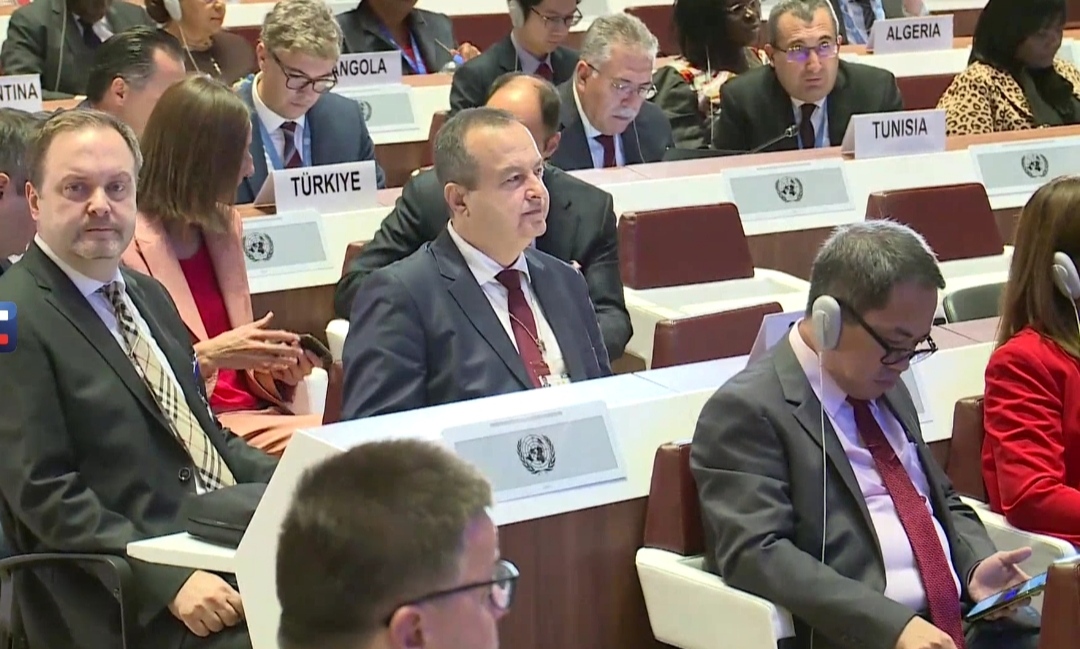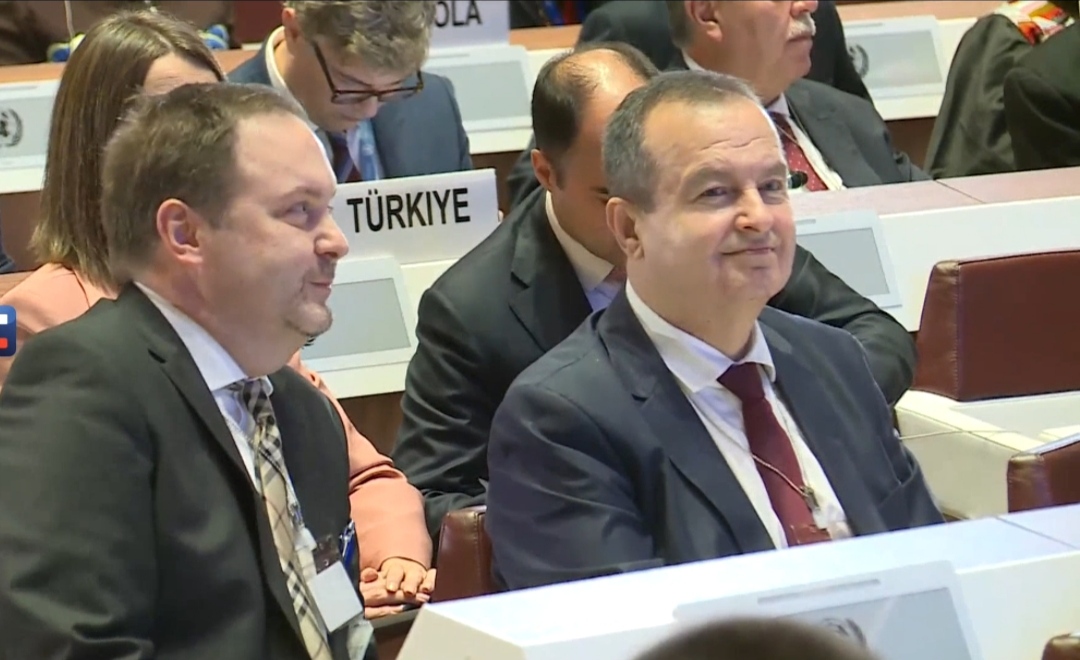Minister Dacic participates in the 74th session of the Executive Committee of the Programme of the UN High Commissioner for Refugees
Full statement by Minister Dacic reads as follows:
„Mr. High Commissioner for Refugees,
Excellencies,
Ladies and gentlemen,
Allow me to greet you on behalf of the Republic of Serbia and wish you successful deliberations at this year's session of the Executive Committee. We expect that the presentations of distinguished representatives of the member states will contribute to a better mutual understanding of the challenges faced by countries that provide care to displaced persons on their territories, but also of the challenges faced by the UNHCR in providing protection to all categories of displaced persons.
The Republic of Serbia is aware of the current situation on a global scale, which has contributed to a record increase in the number of persons forced to leave their homes primarily due to conflicts, but also as a result of climate change. We are aware of the enormous efforts that UNHCR staff, led by High Commissioner Grandi, is making to provide adequate protection and equally meet the needs of both persons in protracted displacement and those who have fled their homes due to acute crises.
The Republic of Serbia, unfortunately, has immediate experience with the suffering of forcibly displaced persons - from refugees fleeing wars in the territory of the former Yugoslavia, to internally displaced persons who were forced to leave their ancestral homes in the province of Kosovo and Metohija, to migrants who found themselves in our territory in search of a better life.
In its efforts to provide protection to persons in displacement and enable the exercise of their rights, the Republic of Serbia is especially grateful to UNHCR for its assistance in the implementation of the Regional Housing Programme, which provided permanent housing solutions for refugees and persons who found themselves displaced amid the conflicts in the territory of the former Yugoslavia in the 1990s. The implementation of this Programme was completed in June this year. Owing to the Regional Housing Programme, the housing needs of 7,495 of the most vulnerable refugee families in the Republic of Serbia have been resolved.
I would like to remind you that the Republic of Serbia, as a country with a protracted displacement crisis, is also the country with the largest number of persons in protracted internal displacement in Europe - the number of registered persons who were forced to flee their homes in Kosovo and Metohija due to ethnic hatred is 210,284, the majority of whom are Serbs as well as other non-Albanian communities - Roma, Ashkali, Gorani.
This is the most difficult humanitarian issue in the Republic of Serbia, which, due to its long duration, but also the shift of the focus of the international community to the new migratory crises in the world, has been partially pushed into the background. According to UNHCR data on Voluntary Non-Majority Returns, 12,707 internally displaced persons returned to Kosovo and Metohija. Due to numerous obstacles, including threats and violence, sustainable return is even lower and is estimated to be below 2%.
Such a low number of returnees to Kosovo and Metohija is disappointing from the aspect of exercising the rights of internally displaced persons. According to UN Security Council Resolution 1244 (1999), this is one of the main tasks of the international presence and the provisional institutions of self-government in Kosovo and Metohija.
Internally displaced persons in the Republic of Serbia are not able to exercise their basic right to freely choose between local integration and sustainable return, because in Kosovo and Metohija, as many as twenty years after the establishment of the international presence, the conditions for sustainable return have not been ensured, in terms of the necessary guarantees of security of persons and property, rule of law, non-discrimination and respect for basic human and civil rights.
The Republic of Serbia approaches the creation of conditions for finding permanent and sustainable solutions for all displaced persons as one of the key issues, seeing that the stabilization of situation in the region hinges on its resolution. We remind you that, while making devoted efforts to address the needs of displaced persons, the rights that they are entitled to in their place of origin must not be neglected.
The Republic of Serbia, in the spirit of solidarity and humaneness, is committed to providing care to persons who left their homes, having faced security threats, and who are moving towards European countries along the so-called "Balkan route".
Currently, close to 2,300 persons are housed in reception centres and centres for asylum seekers, while having all their needs addressed, in accordance with the rights belonging to them as a vulnerable category of persons.
Since the outbreak of the refugee crisis in Ukraine, the Republic of Serbia has been actively involved in providing adequate protection and assistance to refugee Ukrainian citizens who, under a special procedure, are granted temporary protection on the basis of which their basic rights are ensured, including material assistance, health care, the right to work and education. Furthermore, we sent donations through UNICEF and UNHCR, as well as other types of aid, including equipment for the restoration of the electricity system, ambulance vehicles, while a summer school for recovery was organized for children from Ukraine.
At the international level, the Republic of Serbia will continue, on the basis of solidarity and humaneness, to make a constructive contribution in applying a comprehensive approach to finding lasting solutions, prevention and to provision of assistance and protection to displaced persons, through the joint efforts of the UN and interested countries.
To that end, it is of crucial importance that all states adhere to their commitments, as well as that we continue to work together on finding solutions for the root causes of displacement of all categories of displaced persons.
The issue of forced displacement requires a global solution and joint action, based on the principle of burden and responsibility sharing, because it is not a geographically limited phenomenon, but a phenomenon of global proportions.
In conclusion, I would like to emphasize that the progress in exercising the rights of persons in forced displacement is a kind of test of our responsibility and commitment to the principles of humaneness and solidarity, as this year's marking of the 75th anniversary since the adoption of the Universal Declaration of Human Rights reminds us in particular.
I would like to reiterate the readiness of the Republic of Serbia to continue the constructive cooperation carried out so far with the Office of the High Commissioner.
Thank you.“

